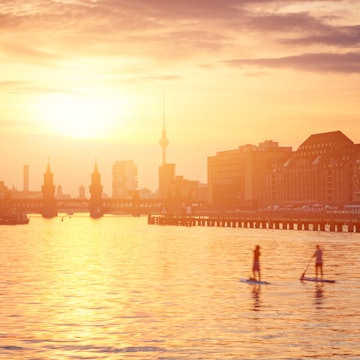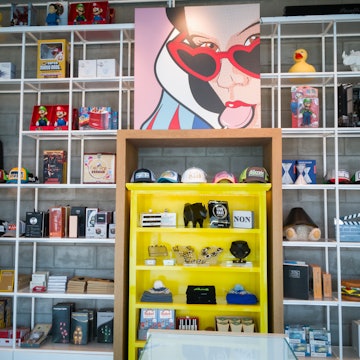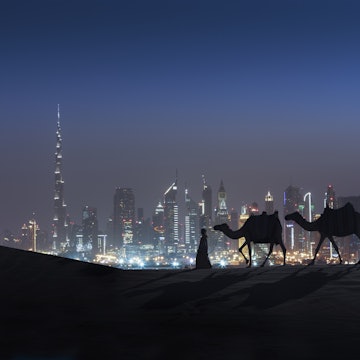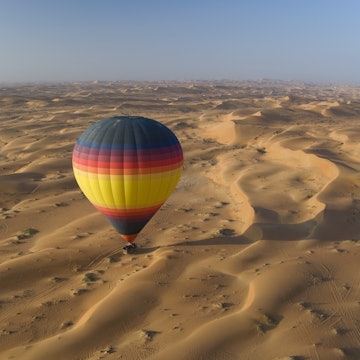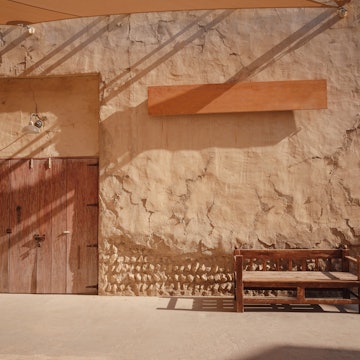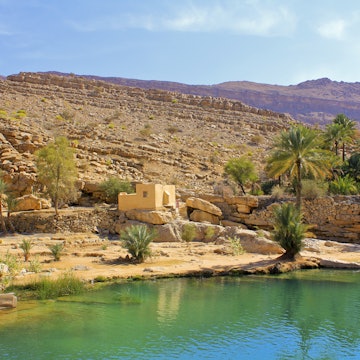

Zhukov Oleg / Shutterstock
Dubai loves to shop. The city has just about perfected the art of the mall, which is the de facto air-conditioned 'town commons', the place to go with the family, hang out with friends and take in some entertainment. So what kind of goods should you look for? We've got the lowdown.
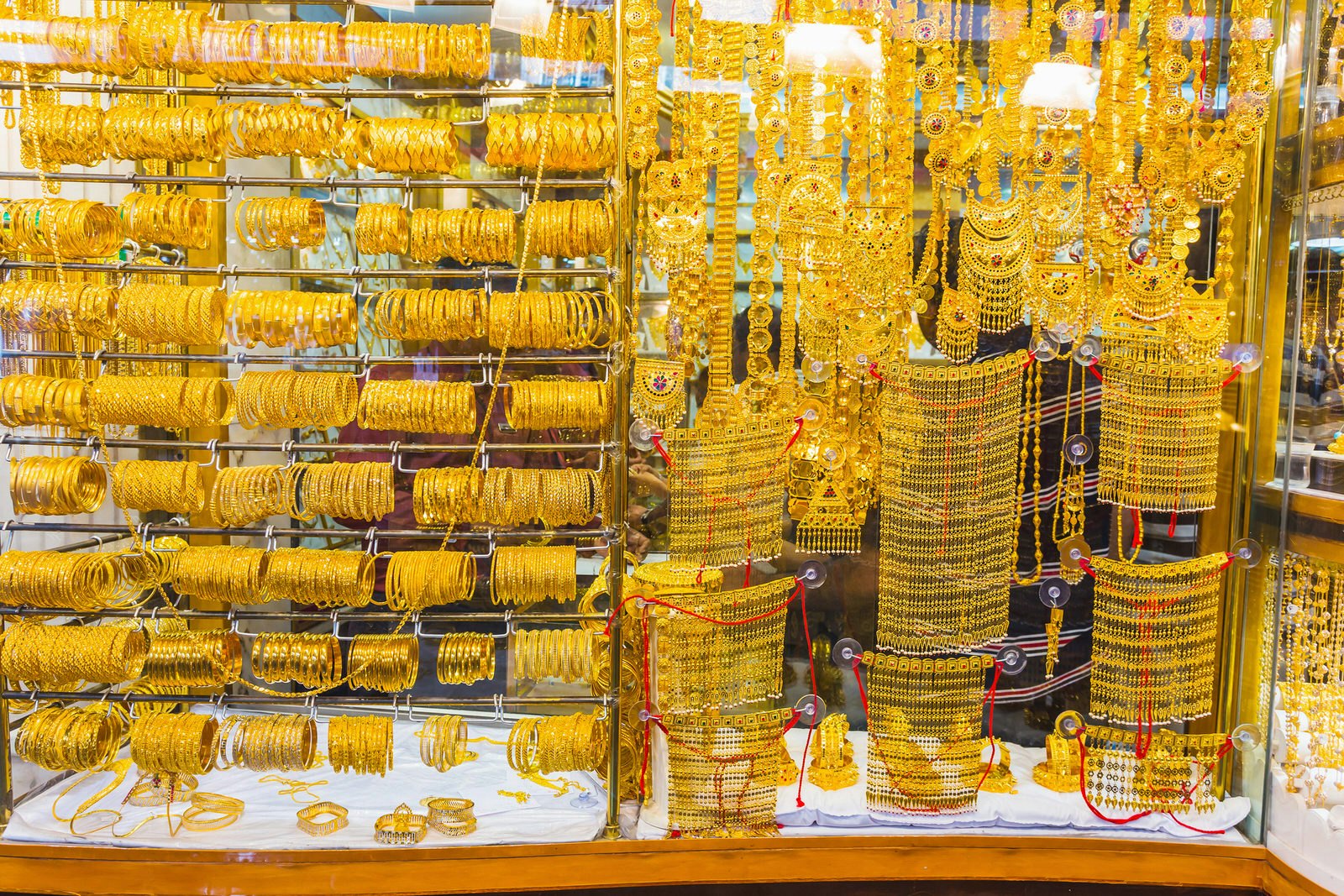
Gold
Dubai is a major gold trading hub and home to the glittering Gold Souq, which specialises in Middle Eastern and Indian jewellery, but also has some contemporary European designs. The Gold & Diamond Park, meanwhile, offers more modern surroundings and a greater variety of European looks. Retail prices for gold jewellery are generally lower in Dubai than countries such as the UK, India and China because of lower making charges, smaller retailer margins, and lower duties and taxes. The final price of a piece of jewellery will depend, in part, on your haggling skills. Check the day’s gold rate – set internationally, with local prices updated two to three times a day and displayed on electronic signs in the souq – and negotiate on the making charge and mark-up.

Carpets
Dubai is a carpet lover’s paradise. Fine Persian carpets, colourful Turkish and Kurdish kilims, and rough-knotted Bedouin rugs are all widely available. Dubai has a reputation in the region for having the highest-quality carpets at the best prices. Bargaining is the norm.
A rug’s quality depends entirely on how the wool was processed. It doesn’t matter if the rug was hand-knotted if the wool is lousy. The best comes from sheep at high altitudes, which produce impenetrably thick, long-staple fleece, heavy with lanolin. No acids should ever be applied to the carpet; otherwise, the lanolin washes away. Lanolin yields naturally stain-resistant, lustrous fibre that doesn’t shed. The dye should be plant-based pigment. This guarantees saturated, rich colour tones with a depth and vibrancy unattainable with chemicals. The dyed wool is hand-spun into thread, which by nature has occasional lumps and challenges the craftsmanship of the weavers, forcing them to compensate for the lumps by occasionally changing the shape, size or position of a knot. These subtle variations in a finished carpet’s pattern – visible only upon close inspection – give the carpet its character, and actually make the rug more valuable.
Dealers will hype knot density, weave quality and country of origin, but really, they don’t matter. The crucial thing to find out is how the wool was treated. A rug made with acid-treated wool will never look as good as it did the day you bought it. Conversely, a properly made rug will grow more lustrous in colour over time and will last centuries.
Here’s a quick test. Stand atop the rug with rubber-soled shoes and do the twist. Grind the fibres underfoot. If they shed, it’s lousy wool. Look through books before you leave home to get a sense of what you like. Once in the stores, plan to linger long with dealers, slowly sipping tea while they unfurl dozens of carpets. The process is great fun. Just don’t get too enthusiastic or the dealer won’t as readily bargain.
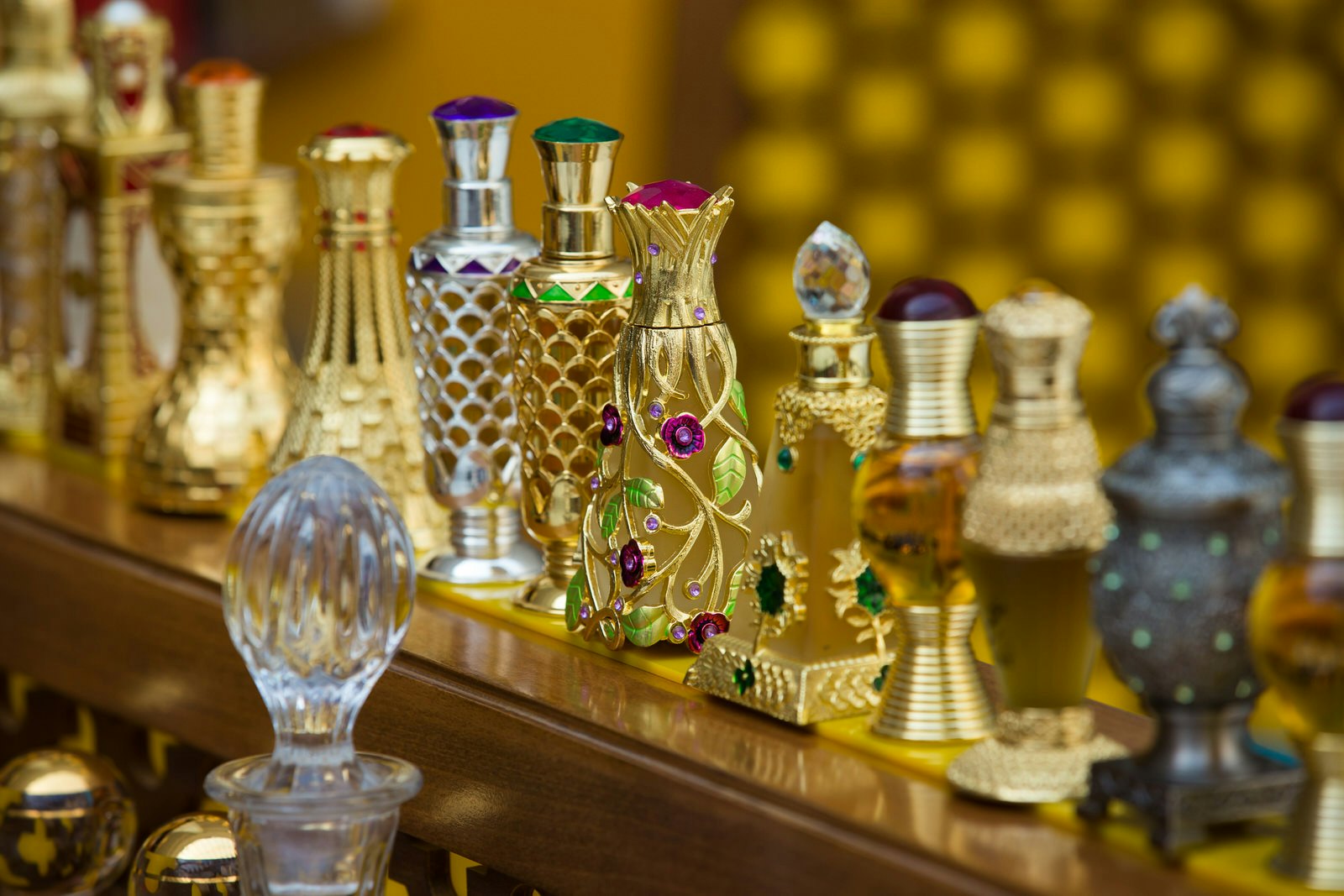
Perfume
Lower tax means French brands are cheaper in Dubai than in Paris, but check the packaging to make sure they’re authentic. With Middle Eastern attars (perfumes), you can be confident no other woman in the room will be wearing the same scent. Shopping for perfume can wear out your sense of smell. If you’re in the market for Middle Eastern scents, do what top perfumers do to neutralise their olfactory palate: close your mouth and make three forceful exhalations through your nose. Blast the air hard, in short bursts, using your diaphragm.

Pashminas
Fakes are found all over the world, but in Dubai you’ll find bargains on real silky-soft 100% pashmina shawls. Women around the world adore pashminas, the feather-light cashmere shawls worn by the Middle East’s best-dressed ladies. If you’re shopping for a girlfriend or your mother, you can never go wrong with a pashmina. They come in hundreds of colours and styles, some beaded and embroidered, others with pompom edging – you’ll have no trouble finding one you like.
Aside from setting it alight to make sure it doesn’t melt (as polyester does), how can you be sure it’s real? Here’s the trick. Hold the fabric at its corner. Loop your index finger around it and squeeze hard. Now pull the fabric through. If it’s polyester, it won’t budge. If it’s cashmere, it’ll pull through – though the friction may give you a mild case of rope burn. Try it at home with a thin piece of polyester before you hit the shops and then try it with cashmere. You’ll never be fooled again.

Dates
The de rigeur gift for any proper gourmet, Bateel dates are the ultimate luxury food of the Middle East. At first glance, Bateel looks like a jewellery store, with polished-glass display cases and halogen pin spots illuminating the goods. A closer look reveals perfectly aligned pyramids of dates – thousands of them. Bateel plays to its audience with gorgeous packaging that might leave the recipient of your gift expecting gold or silver within: the fancy boxes of lacquered hardwood are worth far more than their contents. Alas, they’re manufactured in China, but the dates are not. These come from Saudi Arabia, which has the ideal growing conditions: sandy, alkaline soil and extreme heat. Quality control is tight: Bateel has its own farms and production equipment. The dates sold here are big and fat, with gooey-moist centres.
Because they have a 70% sugar content, dates technically have unlimited shelf life, but you’ll find they taste best around the autumn harvest. If agwa dates are available during your visit, buy them – you may not have another opportunity. Agwa trees only yield every few years, so they’re considered a delicacy. Look for them in September; other varieties arrive in November.

Supermarket souvenirs
Happiness is shopping at Spinneys, Carrefour and Choithrams – the shelves are positively packed with international foodstuffs. Look out for cardamom-flavoured condensed milk. It's worth weighing down the luggage for, and it's great in coffee. Pour Natco rose syrup over sorbet or vanilla ice cream to wow dinner-party guests. The supermarket is also a good place to pick up spices, including saffron, which you won’t find cheaper back home. Soak it in hot cooking water or broth to extract its aroma before adding it to the pot. Still in the spice aisle, look out for zaatar, a blend of thyme, sesame, marjoram and oregano, which can be added to soups, salads or stews.
First published in June 2012
https://shop.lonelyplanet.com/products/dubai-abu-dhabi-city-guide-9






